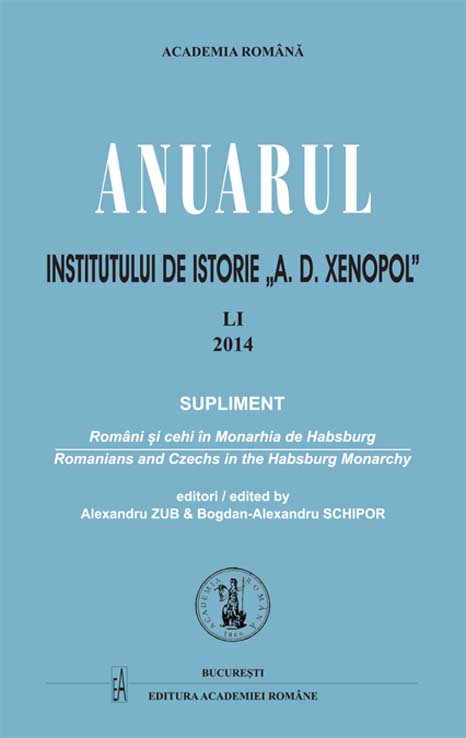BARTOLOMEUS KOPITAR AND JOSEF DOBROVSKÝ ON THE ROMANIANS
BARTOLOMEUS KOPITAR AND JOSEF DOBROVSKÝ ON THE ROMANIANS
Author(s): Radu MârzaSubject(s): History
Published by: Editura Academiei Române
Keywords: Eastern Europe; Balkans; Romanians; linguistics; correspon-dence; slavicists
Summary/Abstract: In the first decades of the nineteenth century, the European erudite world was undergoing a full-fledged process of “discovery” of Eastern Europe: Herder wrote an encomium to the Slavs, Goethe was concerned with the folklore of Balkan peoples, while linguistics, through the efforts of Friedrich Diez and others, had placed the Romanian language among the Romance languages, despite the Cyrillic disguise it was wearing. Not just people and languages, but also regions are “discovered”. This is the case of the Balkans, which have an entire discipline dedicated to them, Balkan Studies, whose father is rightly considered Johann Thunmann. Our paper intends to have a detailed look at the process of „discovery” (in a way of inventing) of the Romanians, as is highlighted by the analysis of the correspondence of two scholars from that period, the slavicists, Bartolomeus (Jernej) Kopitar and Josef Dobrovský, concerning the Romanians. Thus we are interested in the way the latter perceive the Romanians, where they integrate them, from a historical and linguistic (regarding the language they speak) point of view, how they reflect on Romanian cultural production. The instruments we have at our disposal and which we will use the most often are the letters written by the two scholars, published at St. Petersburg and Berlin by the slavicist Vatroslav Jagić in 1885 and 1897, which have unfortu-nately remained unknown to Romanian historians. The only one who has mentioned them, more than a century ago has been Ioan Bogdan. One has to note that, in the edition of 1897 Vatroslav Jagić has included other letters than those which Kopitar and Dobrovský have written to each other, that is, letters sent or received by them from other Slavic scholars of the time, Jacob Supan, Georg (Juraj) Ribay, Vuk Štefanović Karadžić. Some of them also contain references to Romanians, which we will use in our analysis.
Journal: Anuarul Institutului de Istorie »A.D. Xenopol« - Iaşi
- Issue Year: LI/2014
- Issue No: Supl. 3
- Page Range: 53-68
- Page Count: 16
- Language: English

